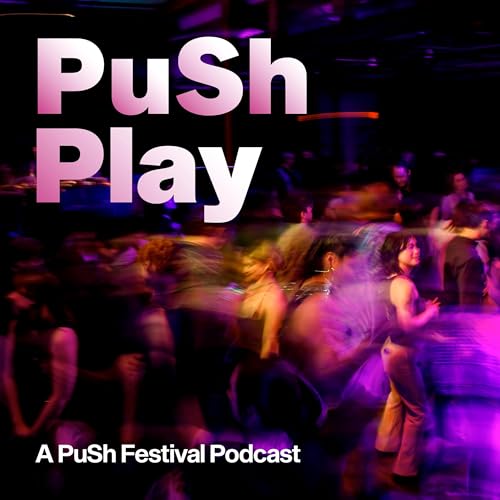Gabrielle Martin chats with Gabi Gonçalves, producer from Corpo Rastreado of Renata Carvalho’s piece, Transpofagic Manifesto, at the 2025 PuSh Festival, January 23 - February 9. Transpofagic Manifesto will be presented with Latincouver at the Waterfront Theatre on February 7 and 8. A special film marathon of Renata Carvalho’s work will also be shown at SFU during the Festival on February 9. To listen to an interview with Renata in Portuguese, please check out the Latinos en Canada podcast. Show Notes Gabrielle and Gabi discuss: What does it mean for your work to give voice? How did Corpo Rastreado come to be, and what does it do? What is the difference between an artist and a producer? What does it mean to be a producer in terms of enabling art and artists? What is the difficulty of using the word “project”? What is the “tree philosophy” of art? What makes a Corpo Rastreado artist? What does it mean to be a “political act of great courage?” How did you start working with Renata Carvalho? What has led to Renata’s international success? How do we approach trans rights across countries with such different laws, such as Brazil and Canada? How do we take care of the audience? How do we learn to work on the micro-political level? About Gabi Gonçalves Paulistana, articulator of the whole zorra for 14 years and our doctor in Communication and Semiotics (Communication and Cultural Production in Brazil - a study on the operators of helplessness and firefly artists - 2016), Gabi Gonçalves is one of the main responsible for this melting pot that is Corpo Rastreado. Working with production, in her opinion, is studying, researching and mainly a political act and a lot of courage, with a pinch of madness! For this premise, she brings in her experience the production in the biggest national and international festivals, knowledge in all the notices and forms of sponsorship (direct or not) as well as full experience in all areas of culture. Land Acknowledgement This conversation was recorded on the unceded, stolen and ancestral territories of the Coast Salish Peoples: the xʷməθkʷəy̓əm (Musqueam), Skwxwú7mesh (Squamish) and Səl̓ílwətaɬ (Tsleil-Waututh), colonially known as Vancouver. Gabi Gonçalves joined the conversation from São Paulo, Brazil, home to the Guarani, Guarani Mbya, Guarani Nhandeva, and Tupi-Guarani Indigenous peoples. It is our duty to establish right relations with the people on whose territories we live and work, and with the land itself. Show Transcript Hello and welcome to Push Play, a Push Festival podcast featuring conversations with artists who are pushing boundaries and playing with form. I'm Gabriel Martin, Push's Director of Programming, and today's episode highlights building relational foundations and plants as inspiration for micropolitical actions. I'm speaking with Gabby Gonzalez, the producer and longtime friend of Renata Carvalho, who is the artist behind Trans -Pothagic Manifesto. This work is being presented at the Push Festival, February 7th to 8th, 2025. And on February 9th, we will also be presenting a marathon of Brazilian films starring Renata, including her own film, Body, It's Autobiography. Trans -Pothagic Manifesto is a courageous and thought -provoking work that challenges perceptions of gender non -conforming and trans -feminine people. Through a radical expression of empowerment, Renata Carvalho subverts the obsessive scrutiny of trans bodies, distilling this gaze and transforming it into art, literature, and education. Gabby Gonzalez holds a PhD in Communication and Semiotics and is one of the main people responsible for the melting pot that is Corpo Hestriado. Working with production in her opinion is studying, researching, and above all, a political act of great courage with a dash of madness. Here's my conversation with Gabby. So just before we get into speaking about your work with Corpo Hestriado and with Renata Carvalho, I just want to start by acknowledging the Indigenous lands that I'm on, that I'm on, stolen ancestral and traditional territories of the Coast Salish peoples, the Musqueam, Squamish, and Tsleil -Waututh, and as a settler here, I continue to educate myself and engage in thinking on what that means that looks like different things every day. today, today that looks like reflecting on indigenous futurisms, largely thanks to a podcast episode by Riley Esno called Land Back to the Future on CBC Gem. And in it, she quotes Nehiya scholar Erika Violet Lee, talking about reconciling the apocalypse. And I found it really evocative with regard to the role of artists and the role of imagining futures as part of a decolonizing practice. So she quotes this scholar in saying that the job of writers and artists is to be the mirror for the people That we build what could have been what should have been that we find the knowledge to recreate all that our world would have been if it wasn't for the...



